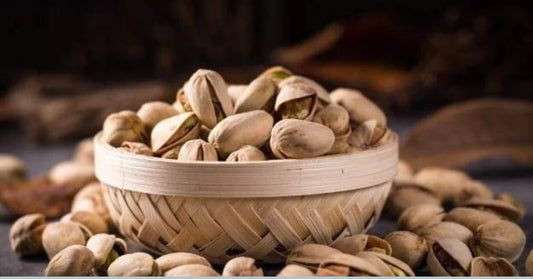The Hidden Wonders of Almonds: More Than Just a Nut
Almonds are a familiar sight in kitchen pantries around the world, prized for their versatility and health benefits. However, there's more to this humble nut than meets the eye. From their surprising botanical classification to their intensive water demands, almonds hold secrets that not only impact our environment but also our culture and health. In this deep dive, we explore the lesser-known facets of almonds, shedding light on their complex nature and the significant role they play in various industries.
A Misunderstood Identity
Firstly, it's essential to clarify a common misconception: almonds are not true nuts. Botanically, almonds are seeds from the fruit of the almond tree (Prunus dulcis). The fruit itself is more akin to a peach or an apricot, where the outer fleshy part is not eaten but instead discarded, and the pit inside contains the edible seed we know as the almond. This botanical classification is more than just a trivial fact; it has implications for agricultural practices and the handling of almond crops around the world.
Thirsty Crops
One of the more critical aspects of almond cultivation is its environmental impact, particularly concerning water use. Almonds are grown predominantly in regions like California, which faces significant water scarcity issues. It takes approximately 1.1 gallons of water to produce a single almond, a fact that has sparked debates about water usage priorities amidst drought conditions. The extensive irrigation required has led to innovations in water management within the industry, including micro-irrigation techniques and efforts to improve water recycling and retention in almond orchards.
The Bitter Truth
While most of us are familiar with sweet almonds, there's another variety that's lesser-known and not intended for direct consumption: bitter almonds. These almonds contain amygdalin, which can be converted into cyanide, a potent poison, when metabolized. Despite this, bitter almonds have their uses. They are processed to remove toxins and used in making almond oil, extracts, and some traditional medicines. The dual nature of almond varieties highlights the importance of processing techniques that ensure they are safe and beneficial for consumption.
Cultural Significance and Global Trade
Almonds hold a special place in many cultures. In Mediterranean countries, they are a symbol of good luck and prosperity, often used in wedding rituals and festive celebrations. The significance of almonds transcends culinary uses, embodying cultural heritage and traditions that date back centuries.
The global trade of almonds is a massive industry, with the United States leading as the top producer and exporter. The scale of almond production speaks to their demand worldwide, influencing economies and agricultural practices. Countries like Spain, Australia, and Morocco also contribute significantly to the global almond market, each bringing their unique varieties and flavors to the table.
Health Benefits: A Nutritional Powerhouse
Beyond their cultural and economic importance, almonds are a powerhouse of nutrition. Rich in vitamin E, magnesium, protein, and fiber, they offer numerous health benefits. Regular consumption of almonds has been linked to improved heart health, lower cholesterol levels, and even weight management. Their antioxidant properties help combat oxidative stress, making almonds a favored ingredient in diets focused on longevity and health.
A Sustainable Future?
As we continue to enjoy almonds in various forms—from raw nuts to almond milk—it is crucial to consider their environmental and economic impact. Sustainable farming practices are more important than ever to ensure that we can continue to enjoy almonds without compromising the health of our planet.
In conclusion, the story of almonds is a tapestry woven with threads of botany, culture, economics, and nutrition. As consumers, understanding the broader implications of our food choices can lead to more informed decisions that support sustainability and health. Whether sprinkled over a salad, blended into a smoothie, or enjoyed straight from the pack, almonds are indeed a marvel of nature worth appreciating in all their complexity.













